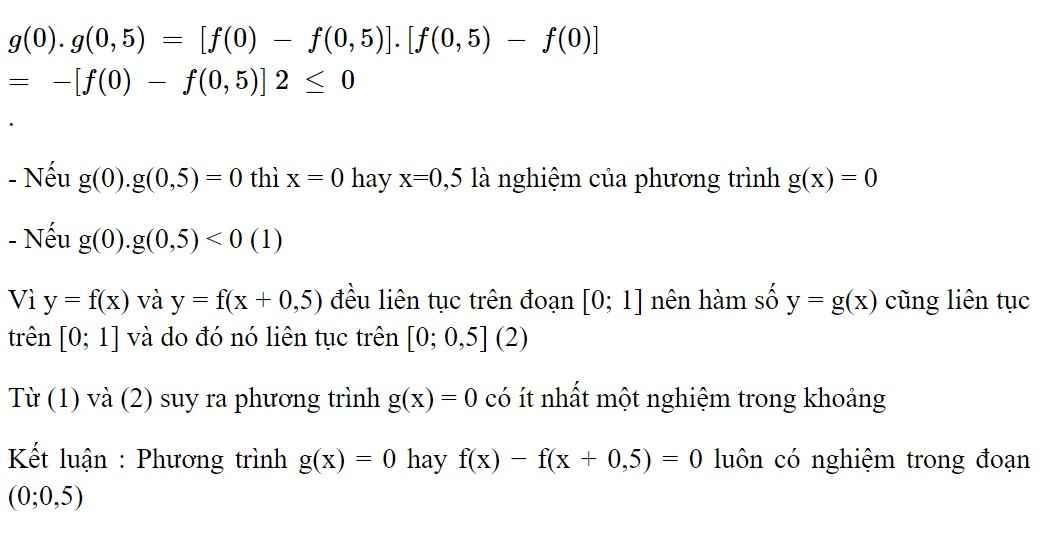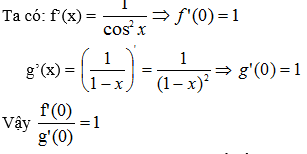
Hãy nhập câu hỏi của bạn vào đây, nếu là tài khoản VIP, bạn sẽ được ưu tiên trả lời.


Tham khảo:
Xét hàm số g(x) = f(x) − f(x + 0,5)
Ta có
g(0) = f(0) − f(0 + 0,5) = f(0) − f(0,5)
g(0,5) = f(0,5) − f(0,5 + 0,5) = f(0,5) − f(1) = f(0,5) − f(0)
(vì theo giả thiết f(0) = f(1)).
Do đó,


f(x)=sin3x , f '(x) = 3cos3x .... f ''(x) =-3.3.sin(3x)
suy ra f ''(x) = -9sin(3x) ....
f ''(\(\dfrac{\pi}{2}\)) = -9.sin(3.\(\dfrac{-\pi}{2}\)) =-9
f ''(0\(\)) = -9.sin(3.0\(\)) =0
f ''(\(\dfrac{\pi}{18}\)) = -9.sin(3.\(\dfrac{\pi}{18}\))=\(\dfrac{-9}{2}\)..ok nha

a) Ta có f'(x) = 6(x + 10)'.(x + 10)5
\(=6.\left(x+10\right)^5\)
f"(x) = 6.5(x + 10)'.(x + 10)4 = 30.(x + 10)4.
=> f''(2) = 30.(2 + 10)4 = 622 080.
b) Ta có f'(x) = (3x)'.cos3x = 3cos3x,
f"(x) = 3.[-(3x)'.sin3x] = -9sin3x.
Suy ra f"\(\dfrac{-\pi}{2}\) = -9sin\(\dfrac{-3\pi}{2}\) = -9;
f"(0) = -9sin0 = 0;
f"\(\dfrac{\pi}{18}\) = -9sin\(\dfrac{\pi}{6}\) = \(\dfrac{-9}{2}\).

\(\lim\limits_{x\rightarrow0}\left|f\left(x\right)\right|=\lim\limits_{x\rightarrow0}\left|x^2sin\dfrac{1}{x}\right|< \lim\limits_{x\rightarrow0}\left|x^2\right|=0\).
Vậy \(\lim\limits_{x\rightarrow0}f\left(x\right)=0\).
\(f\left(0\right)=A\).
Để hàm số liên tục tại \(x=0\) thì \(\lim\limits_{x\rightarrow0}f\left(x\right)=f\left(0\right)\Leftrightarrow A=0\).
Để xét hàm số có đạo hàm tại \(x=0\) ta xét giới hạn:
\(\lim\limits_{x\rightarrow0}\dfrac{f\left(x\right)-f\left(0\right)}{x-0}=\lim\limits_{x\rightarrow0}\dfrac{x^2sin\dfrac{1}{x}}{x}=\lim\limits_{x\rightarrow0}xsin\dfrac{1}{x}=0\).
Vậy hàm số có đạo hàm tại \(x=0\).
